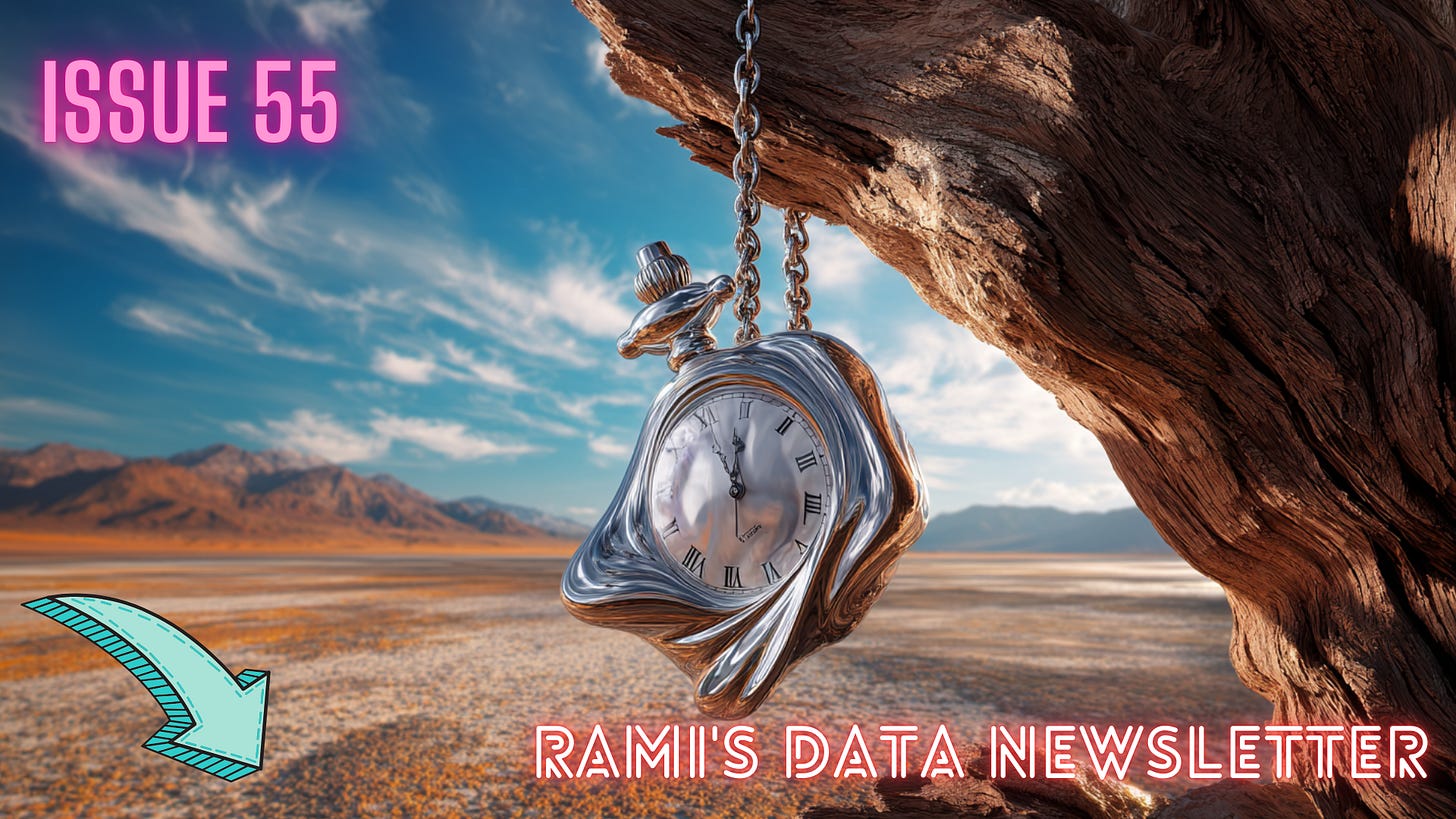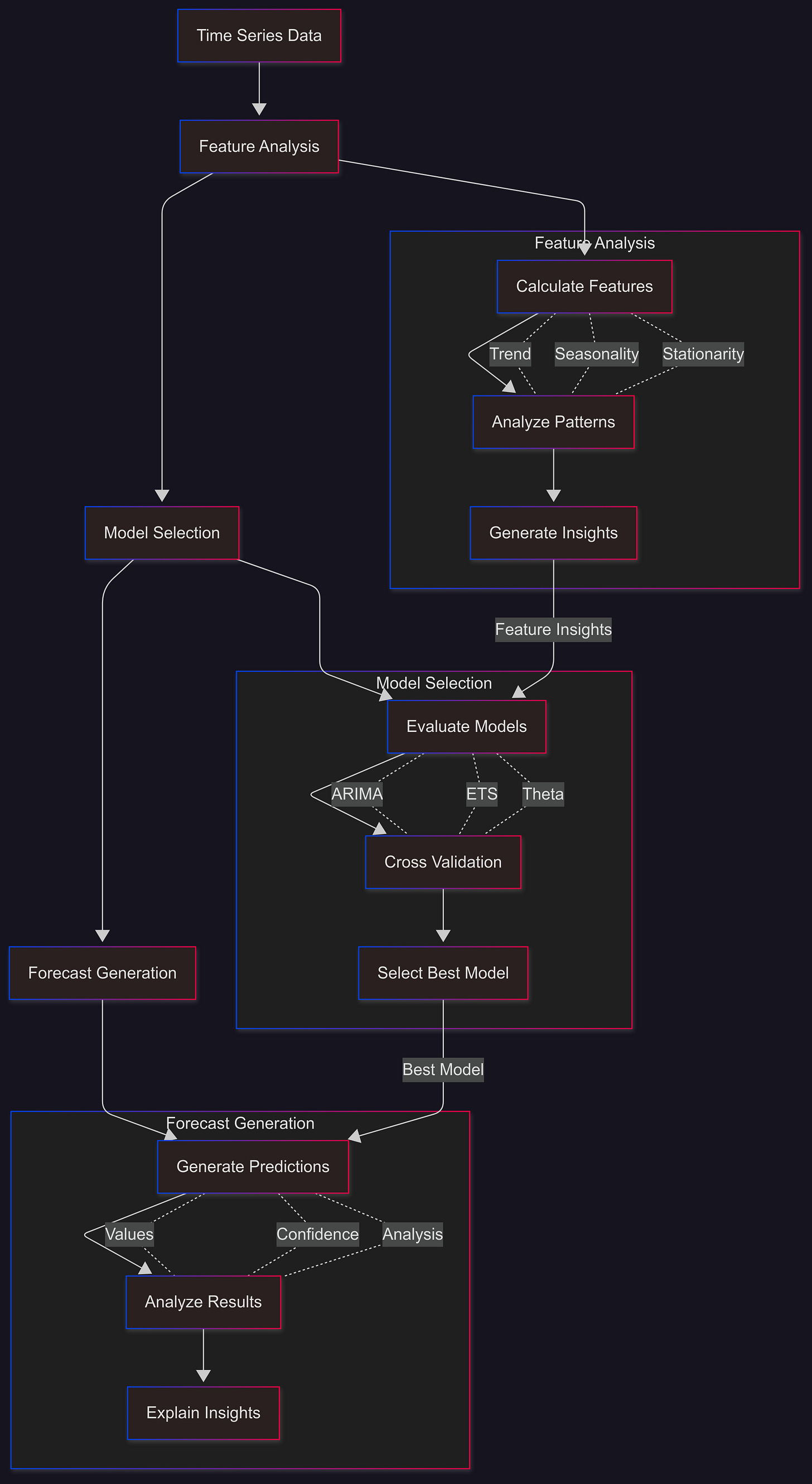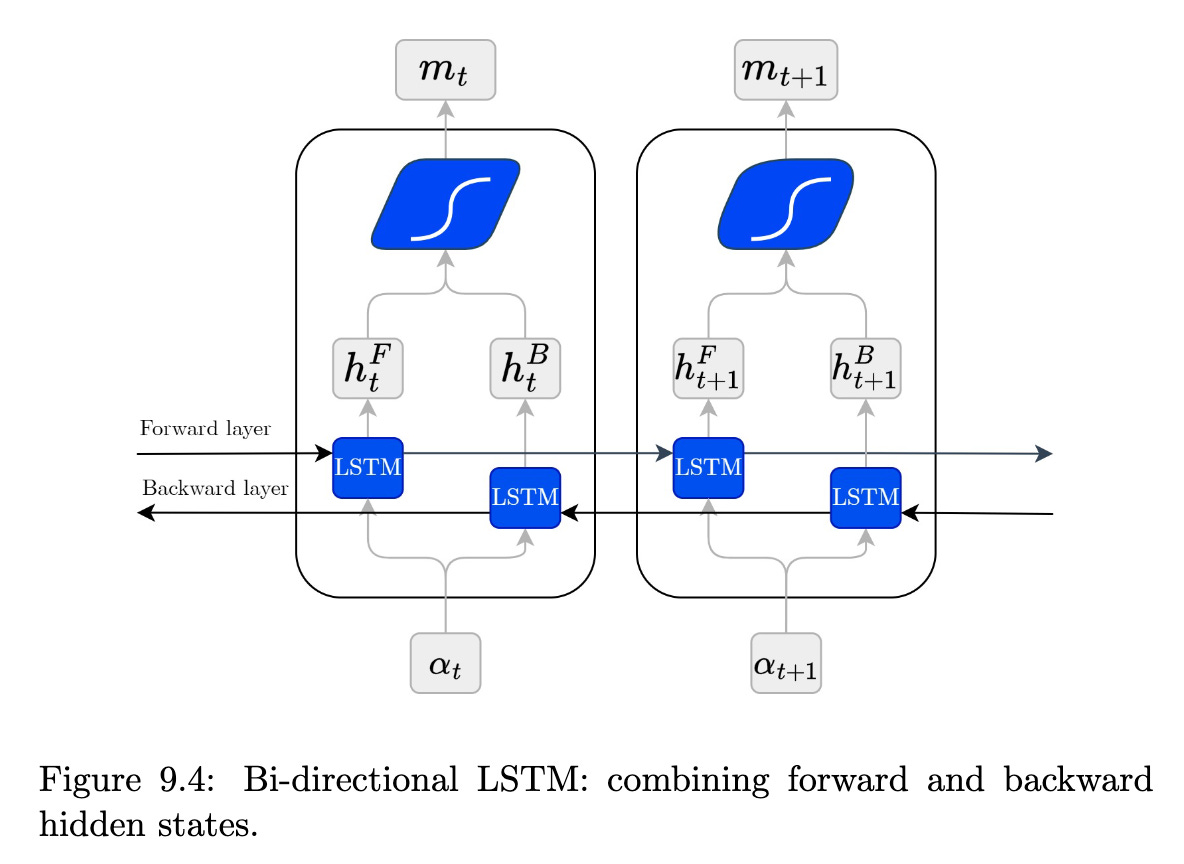The TimeCopilot Project, Modern Deep Learning Foundations Book, New Tutorials
A weekly curated update on data science and engineering topics and resources.
Hi folks,
Last week, this newsletter reached its 1st anniversary. What started as an experiment is now updated weekly. I want to thank each of you for your support!
This year, the newsletter gained more than 32,000 subscribers on LinkedIn and Substack, and starting this week, we’re expanding to Medium!
If you’re enjoying this newsletter, here’s how you can support:
♻️ Please share this with others interested in these topics.
If you have a Medium subscription, please read this newsletter on Medium.
If you have a LinkedIn Learning subscription, please check out my courses.
This week's agenda:
Open Source of the Week - The TimeCopilot Project
New learning resources - LLM & RAG evaluation playbook, git course, deploy AI app to Hugging Face Spaces, n8n tutorials, building LLMs from Scratch
Book of the week - Modern Deep Learning Foundations by Dr. Barak Or
I share daily updates on Substack, Facebook, Telegram, WhatsApp, and Viber.
Are you interested in learning how to set up automation using GitHub Actions? If so, please check out my course on LinkedIn Learning:
Open Source of the Week
This week’s focus is on the TimeCopilot by Azul Garza - an agentic framework for time series forecasting. As a time series person, this is one of the most interesting projects I have come across recently. This agent framework enables users to interact with time series data using natural language.
Project repo: https://github.com/AzulGarza/TimeCopilot
Project Highlights and Key Features
An agentic framework for working with time series data supporting forecasting and anomaly detection applications
Integration of foundation models such as Nixtla TimeGPT, Amazon Chronos, Google TimesFM, and Salesforce Moirai
Support classical statistical, machine learning, and neural network models
Enable experimentation, testing, and benchmarking a wide range of forecasting models and select the best-performing model
More details are available in the project documentation.
License: MIT
New Learning Resources
Here are some new learning resources that I came across this week.
LLM & RAG Evaluation Playbook for Production Apps
This one-hour workshop by
focuses on evaluating LLM/RAG apps before deploying to production, and it covers the following topics:Add a prompt monitoring layer
Visualize the quality of the embeddings.
Evaluate the context from the retrieval step used for RAG
Compute application-level metrics to expose hallucinations, moderation issues, and performance (using LLM-as-judges)
Log the metrics to a prompt management tool to compare the experiments.
Git Crash Course
This looks like a great “getting started” course for Git, and it covers the foundation of version control with Git. This includes topics such as:
Setup
Creating a new Git repository
Staging files
Committing changes
Deleting and untracking files
Viewing the project history
Deploy AI App to Hugging Face Spaces
The following tutorial by Shaw Talebi provides a step-by-step guide to deploying a Streamlit app to Hugging Face Spaces with Docker.
Getting Started with Self-Hosting n8n
The following tutorial provides an in-depth guide for setting up and deploying automation with n8n.
n8n tutorial
The following n8n tutorial provides a step-by-step guide for self-hosting an n8n server to automate tasks using Docker.
Build an AI Agent
This tutorial by freeCodeCamp contains three workshops focusing on building AI agents:
Workshop 1: Building Voice Agents with LiveKit and Cerebras
Workshop 2: Creating Research Assistants with Exa and Cerebras
Workshop 3: Developing Multi-Agent Workflows with LangChain and Cerebras
Building LLMs from Scratch
This new tutorial from freeCodeCamp provides a complete guide for building a large language model from scratch using only pure PyTorch. The course covers the entire lifecycle of the process from foundational concepts to advanced alignment techniques, and it covers the following topics:
Introduction
Core Transformer Architecture
Training a Tiny LLM
Modernizing the Architecture
Scaling Up
Mixture-of-Experts (MoE)
Supervised Fine-Tuning (SFT)
Reward Modeling
RLHF with PPO
Book of the Week
This week’s focus is on a new deep learning book - The Modern Deep Learning Foundations by Dr. Barak Or. The book, as the name implies, focuses on the foundation of deep learning, and it covers the following topics:
Machine Learning vs. Deep Learning – fundamental distinctions
Neurons, layers, activation functions, and FeedForward networks
Backpropagation, loss functions, optimization, and hands-on training
Overfitting, regularization methods, and selecting performance metrics
CNNs and RNNs, dimensionality reduction, Transformers
Industrial infrastructure: Colab, model saving, building APIs with FastAPI
Preparation for further specialization in CV, Tabular Data, Time Series, and LLMs
The book is ideal for software engineers, data scientists, researchers, and developers with a background in Python who are looking to build a strong foundation in deep learning and work with industry-relevant models.
Thanks to the author, the book is openly available online for free on the author’s website.
Have any questions? Please comment below!
See you next Saturday!
Thanks,
Rami




